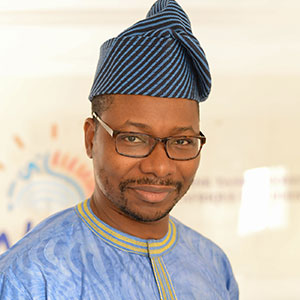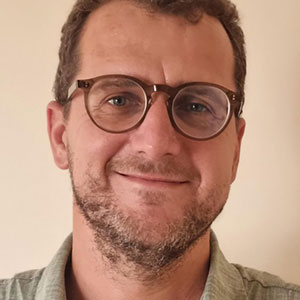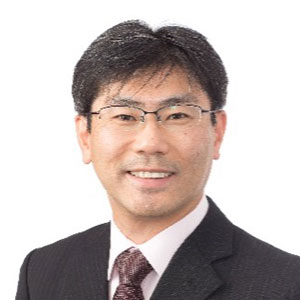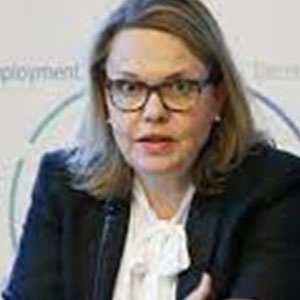Workshop 6: “Youth, citizenship and sovereignty: the challenges of education and training”
Context
The development of human capital through education and training is one of the major challenges of African states, not only through a total enrolment of children, but also by adapting teaching to the increasing digitalization of all activities and business processes around the world. During the 7th edition of the forum, attempts were made to address the problem of the impact of population growth, especially in the field of education and employment to avoid negative consequences on the security level. According to forecasts by international organizations and development partners, by 2050 the continent could have 2.4 billion inhabitants, doubling the current population. Although demographic issues will be at the heart of the economic agenda of the African continent in the coming years, the increase in demography itself is not an issue insofar as Africa’s surface area is 30.37 million km², with a density of slightly more than 43 inhabitants per square kilometer, which is three times lower than that of the European Union. Consequently, one of the only important criteria to take into account is the youth of the population, estimated by the World Bank at 77%, hence the need for a more active population. Far from being an opportunity to be exploited, this demographic dynamic seems to represent a a real burden for the continent as it generates a strong social a strong social demand that governments have difficulty governments have difficulty in satisfying. Excluded from political processes, deprived of viable employment opportunities and suffering a growing sense of hopelessness, young people become become vulnerable and credulous to the messages by terrorists, violent extremists, and organized criminals who and organized criminals who lure them in through various financial incentives, messages of hope, religious religious arguments, etc. Thus, in the continuity of the previous edition, this 8th edition will seek answers to these challenges in the progress to be made with regard to the lack of training of African youth in the creation and use of computer tools and digitalization, in a world that is increasingly digitalized and should not leave any sector on the sidelines. They are also to be found in citizenship education, which is crucial in the impregnation of the norms of living together that must be shared and accepted. shared and accepted. Finally, these responses must integrate the necessary changes expected of the African education system, which is still struggling to develop vocational training, a source of massive job creation for young people and a vector of sovereignty in key sectors such as agriculture, livestock and fishing.
Objectives
This workshop aims to highlight the place of human capital, particularly African youth, spearheading the construction of new of new sovereignties. In addition to the challenges related to training and the opportunities offered by the digital revolution, it will promote the ways and means of appropriating a new citizenship articulated around an educational system adapted to the real needs. In addition to the challenges related to training and the opportunities offered by the digital revolution, it will promote ways and means of appropriating a new citizenship based on an education system adapted to real needs in accordance with the Incheon Declaration “Education 2030” and the “Agenda 2063 of the African Union”.
Issues to be addressed
- How can African youth take advantage of the ongoing digital revolution to drive the development of science, technology and innovation?
- What roles for African youth in sustainable development policies, especially in the quest for new sovereignties (digital, energy, food, etc.)?
- What are the reforms to be undertaken in the current African educational systems to promote training for citizenship, civic-mindedness and employment?
- What are the challenges of NICTs to overcome in education and the consolidation of citizenship in Africa?
Speakers
-
Aïchatou MINDAOUDOUModerator
-
 Gilles Olakounlé YABISpeaker
Gilles Olakounlé YABISpeakerFounder and CEO of WATHI, the West Africa Citizen Think Tank
Gilles Olakounlé Yabi is the founder and CEO of WATHI, the West Africa Citizen Think Tank (www.wathi.org). Gilles Yabi worked as senior political analyst and later as West Africa Project Director of the International Crisis Group. Holding a Ph.D. in Development economics from the University of Clermont-Ferrand in France, Gilles Yabi also worked as a journalist for the weekly magazine Jeune Afrique in Paris. Gilles is also currently a non-resident scholar at the Africa Program of the Carnegie Endowment for International Peace based in Washington DC, US.
-
 Guillaume HUSSONSpeaker
Guillaume HUSSONSpeakerHead of the Education Sector of UNESCO’s Multisectoral Regional Office for West Africa (Sahel)
Graduated in Political Sciences and in Education and Training Management, Mr. HUSSON has been working on education in Africa for 20 years. He has held positions as an international expert in the Ministries of Education in Mauritania and Benin, then at the UNESCO International Institute for Educational Planning (IIEP-UNESCO) for Africa. In 2012, Mr. Husson was appointed Head of the UNESCO IIEP Office for Africa. Since 2022, he has held the position of Head of the Education Sector at the UNESCO Regional Office for West Africa (Sahel).
-
 Hiromichi MORISHITASpeaker
Hiromichi MORISHITASpeakerChief Representative of JICA Senegal as well as Regional Director that covers six neighboring countries such as Cape Verde, Gambia, Guinea, Guinea-Bissau, Mali and Mauritania.
His expertise covers education and development in Africa. Before assuming the present post, he served as Deputy Director General of Human Development Department (in charge of Basic Education) and that of Africa Department. He was also a Chief Representative of JICA Burkina Faso. He holds a Ph.D. from Keio University, Japan and an MS in International Project Management from Ecole Supérieure de Commerce de Paris, France.
-
Moustapha Mamba GUIRASSYSpeaker
-
 Sofie FROM-EMMESBERGERTalker
Sofie FROM-EMMESBERGERTalkerDirector General for Africa and Middle East at the Ministry for Foreign Affairs of Finland
Ambassador Sofie From-Emmesberger, Director General for Africa and Middle East at the Ministry for Foreign Affairs of Finland, took up her current position in October 2021 after having served for three years as the Chair of EU’s Political and Security Committee, PSC, (2018-2021) and before as the Ambassador of Finland to PSC (2015-2018). She has held the position as Ambassador of Finland to Kenya, Somalia, Uganda, Eritrea and the Seychelles as well as Permanent Representative to the UN in Nairobi (2011-2015). She has also served at the Finnish missions in Tel Aviv and Strasbourg. She has worked at the Political Department of the MFA in the fields of civilian crisis management as well as human rights.
